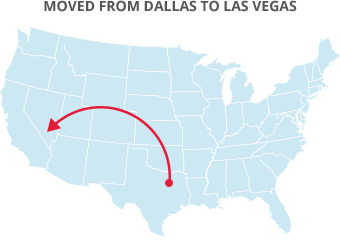

 In almost every home, the kitchen is the most complicated area to pack. Many areas, it is simple enough to bring in a bunch of boxes and place everything into them until it’s all packed up. The natural flow of the area makes it easy to sort the box contents. The kitchen, however, necessitates a different technique for every type of item. Even if you have moved lots of times and have become an expert at swaddling glassware and stacking newsprint between plates and serving bowls, there is always that one burning question: What should you do about the food that is in your pantry and refrigerator?
In almost every home, the kitchen is the most complicated area to pack. Many areas, it is simple enough to bring in a bunch of boxes and place everything into them until it’s all packed up. The natural flow of the area makes it easy to sort the box contents. The kitchen, however, necessitates a different technique for every type of item. Even if you have moved lots of times and have become an expert at swaddling glassware and stacking newsprint between plates and serving bowls, there is always that one burning question: What should you do about the food that is in your pantry and refrigerator?
It would be uneconomical to throw it out, it's often hard to work out the best way to tackle these pantry leftovers.
Packing your pantry is only a good idea a portion of the time. The most crucial aspects to consider are the distance from origin to destination, the safety of the food items, and the expiration dates. If you are just moving a reasonably short distance, you will be able to move everything that will transport cleanly because there is very little lag or opportunity for spoilage. For cross-country moves, however, take a look at expiration dates and only pack things with more than half a year remaining. Non-glass spice jars and unopened things may be packed but open canisters and cartons should be set to the side. You might also want to think about the cost of moving inexpensive canned goods when added to a cross-country move.
After you know what in your pantry you are going to pack, commence getting your boxes ready. Plastic containers with snapping lids are best for food storage because cans may become too cumbersome for cardboard and plastic will inhibit insect infestation. Keep your pantry box as orderly and snuggly packed as possible to evade discovering a mess when you unpack in Wichita Falls.
Stack the bulkiest items on the bottom and line up any squared-off or boxed items firmly against each other. Use sealable bags and Tupperware to seal open items of food or ingredients. You can even use dividers made of plastic or a cut-up cardboard box to ensure everything stays upright and secure. Label the box as delicate so there is no confusion with your movers when they load it up. If only nonperishable food items are in your pantry box and it is all sealed, it should be okay to transport with the rest of the boxes, but it is certainly a smart idea to double check with your moving company concerning what can and can’t be loaded on the truck.
The first detail to think about is that foods in the refrigerator can and will go bad if they are not taken care of correctly. Usually, refrigerator items are only packed for a move if the move involves fewer than two hours of driving. But, it's understandable to not want to trash your collection of freezer resources and any excess staples on moving day, but you will have to transport it in your car. Moving companies do not manage items that can go bad.
To move your refrigerator things, first, make positive the fridge and freezer at the new location are turned on and working properly. Then, it will be acceptable to pack up your items from the fridge and freezer into a large cooler that is about half-filled with ice. Transport the items over to the new house, put in the fridge, and enjoy not having to go to the grocery store on moving day.
 Finally, there is the issue of how to handle the items you can't or do not elect to move with you. There are places that will be happy to accept the food that you don’t want and get it onto the plates of those who don’t have enough. Food donation is a crucial type of local charity, so whether you have a few boxes of mac & cheese or an entire pantry full of non-perishables, ponder donating what you don’t need or cannot transport to your new residence. A-1 Freeman Moving Group proudly participates in Move for Hunger, a non-profit organization that works with moving companies to collect non-perishable food items, and deliver them to food banks across the United States. Click here or on the picture above to learn more!
Finally, there is the issue of how to handle the items you can't or do not elect to move with you. There are places that will be happy to accept the food that you don’t want and get it onto the plates of those who don’t have enough. Food donation is a crucial type of local charity, so whether you have a few boxes of mac & cheese or an entire pantry full of non-perishables, ponder donating what you don’t need or cannot transport to your new residence. A-1 Freeman Moving Group proudly participates in Move for Hunger, a non-profit organization that works with moving companies to collect non-perishable food items, and deliver them to food banks across the United States. Click here or on the picture above to learn more!
Nearly everyone moving from house to house has things remaining in their cupboard, even if you attempted to use up leftovers. Knowing when to pack, which items can be packed, and when to think about donation is a crucial element of the moving process. With the right tactics, you can arrive to your new home in Wichita Falls with the maximum number of safely packed non-perishable foodstuffs and a tranquil feeling having provided the extra to those who can benefit most from it.

